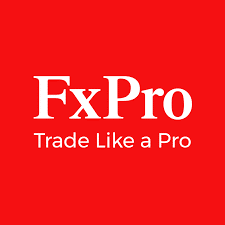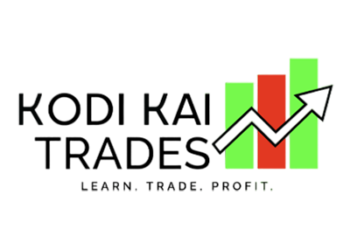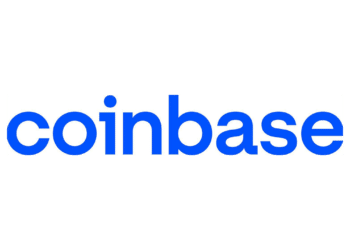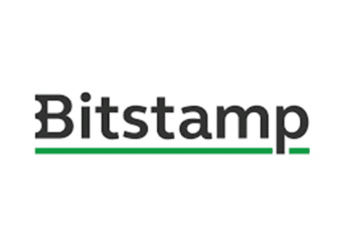London is the world’s biggest forex trading center. According to the Bank of England, London accounts for around $2.98 trillion of the $5 trillion in forex that is traded daily around the globe. London’s popularity can be attributed to its advanced infrastructure, favorable regulatory policies, and its accommodation of beginner traders.
To this end, there are plenty of forex brokers operating in the UK. However, not all of them are regulated by the country’s licensing body. Of those that are licensed by the Financial Conduct Authority, only a handful offer favorable fees, user-friendly platforms, and dedicated customer service. In this article, we’ll explore in detail five of the best brokers in the country. This is not a hierarchical order but rather a list of the cream of the crop of forex brokers in the UK.
List of the best UK forex brokers
| Platform | Founded | HQ | Regulations | Markets | Platforms | Deposit from | Leverage up to | Website |
 | 2010 | Australia | ASIC, FCA, DFSA, CySEC, BaFin, SCB, CMA | CFDs (Forex, Indices, Commodities, Crypto, ETFs, Shares) | MT4, MT5, cTrader, TradingView | $200 | 1:30 | visit |
 | 1974 | UK | FCA, CFTC, NFA, FINMA | Forex, Indices, Commodities, Stocks, Options, Bonds, ETFs | MT4, IG | $0 | 1:50 | visit |
 | 2006 | Israel | FCA, ASIC, CySEC, FinCEN | Forex, Commodities, Stocks, Crypto, ETFs, Indices | eToro | $200 | 1:30 | visit |
 | 1995 | USA | CFTC, NFA, IIROC, FCA, ASIC, MAS | Forex, Indices, Commodities, Bonds, Metals | MT4, Oanda Trade | $0 | 1:50 | visit |
 | 2006 | UK | FCA, CySEC, FSCA, SCB | Forex, Indices, Futures, Options, Stocks, Metals, Energies | MT4, MT5, cTrader, FxPro | $100 | 1:200 | visit |
The best brokers in the United Kingdom are:
- Pepperstone – This is overall the best brokerage firm in the UK. It has adapted well to social copy trading in recent years.
- IG – This is the best premium broker on the island.
- eToro – This is the best platform for copy-trading.
- OANDA – This platform is best suited for beginner traders.
- FxPro – This is the best broker for experienced traders who prefer the MetaTrader platforms.
Pepperstone
Pepperstone is a brokerage that was established in Australia in 2010. To that end, it holds two top-tier licenses, one from Australia’s ASIC and another from UK’s FCA. This broker has no minimum deposit requirement, which makes it very accessible. You can open an account with Pepperstone from the comfort of your home in around 15 minutes. The verification process, however, can take up to 3 days.
This broker offers two types of accounts. The first is a standard STP account, which grants subscribers all the standard features and access to all of Pepperstone’s platforms. The other is a Razor account which is meant for expert traders. It is characterized by higher commissions, but subscribers get to enjoy lower spreads. They also have an Islamic account that’s similar to the standard STP account, except it’s swap-free and does not charge rollover interest on overnight positions.
Pepperstone offers their clients leverages up to 1:30 (1:500 Professional only). These clients can choose to trade from 70 currency pairs, 1000+ stock CFDs, 25 stock index CFDs, and 21 cryptocurrency CFDs. This brokerage is also compatible with the MetaTrader platforms, cTrader, and TradingView. They utilize an NDD execution model, which allows them to offer lower spreads to their clients. They also support several copy-trading platforms.
Pros:
- Allows copy-trading.
- Easy to use for beginners and expert traders alike.
- It has a wide variety of securities to invest in.
- Their customer service is commendable.
Cons:
- Relatively low leverage offered
- Withdrawal fees
IG
IG is one of the best-regulated forex brokers in the UK. It is licensed by the Financial Conduct Authority (FCA). Its shares are traded on the London Stock Exchange, which is further proof of its legitimacy.
They offer a wide array of tradable assets to invest in. Their platform has various educational and research tools. These tools include technical analysis on various charts and real-time economic news.
IG also offers traders competitive rates. In addition, their fee structure is transparent. Their customer service is quick and efficient, dedicated to providing help around the clock. Everything on the platform can be customized to your liking, and the platform itself is very user-friendly. Even as a beginner in forex, the abundance of educational material and an omnipresent support team will make you feel right at home.
Pros:
- It is a tightly licensed and trustworthy platform.
- It offers more than 16,000 tradable assets.
- It offers lower spreads than most competitors.
- The IG platform is customizable and has advanced features.
Cons:
- They do not offer any social trading services.
- After 2 years, they charge an exorbitant inactivity fee.
eToro
eToro is licensed by the FCA. The platform offers a variety of tradable assets, from forex to commodities, stocks to cryptocurrencies. However, eToro is best known for copy-trading. It has over 3 million traders who you can copy from. You also have the option to copy several traders simultaneously. This can be done by splitting your portfolio so that each subsection you create copies a specific trader on the platform. This way, even if you are a beginner, you get in on profitable trades while still learning on the job.
On eToro, you can trade more than 45 currency pairs. The platform is available on a web and mobile platform and comes in more than 20 languages. Their minimum deposit is $200 for UK residents. They do not charge a deposit fee, but if you deposit GBP, you’ll have to convert it to USD, which carries a 0.025% conversion fee.
Withdrawals are charged at $5, and you cannot withdraw below $50. Currency conversion fees also apply if you’re converting from USD. They also charge a $10 inactivity fee after a year of inactivity.
Pros:
- Allows copy trading of over 3 million traders.
- It is user-friendly to novice traders and expert traders alike.
- It offers a wide variety of tradable assets.
- Their customer service is excellent.
Cons:
- The fees are relatively high.
- Their default currency is US dollars.
OANDA
OANDA is a reputable forex brokerage firm headquartered in the US. They are regulated by Australia’s ASIC and UK’s very own FCA. They offer over 100 tradable assets, mostly dealing in currency pairs and CFDs. Its platform is user-friendly and comes with several tools for beginners and expert traders alike. It is also multilingual for inclusivity, offering up to 8 different languages.
On Oanda, you can have an initial deposit as low as $1. They also offer a demo account that you can use to familiarize yourself with the platform without spending a dime.
Pros:
- It has great research tools.
- It charges low trading fees.
- It charges zero withdrawal fees.
- It has no minimum deposit.
- It offers a demo account.
Cons:
- It charges an inactivity fee.
- Their customer support is not always available.
- Has limited investment options; only offers forex and CFDs.
FxPro
FxPro is best known for spread betting due to its ultra-low spreads. They offer more than 70 currency pairs on which traders can invest, in addition to shares, commodities, and futures CFDs. In addition, clients get institution-level pricing. This is because FXPro uses top-tier liquidity providers who operate the Non-Dealing Desk type of trade execution.
This brokerage is compatible with MetaTrader 4 and 5, and cTrader. FxPro also offers a FxPro Edge platform that allows for customization and charges zero commission, in addition to their signature tight spreads. Further, the platform charges no deposit or withdrawal fees.
Pros:
- They have dedicated customer support.
- They offer NDD execution, hence tight spreads.
- Their trade execution speeds are off the charts.
Cons:
- They charge high inactivity fees.
- They charge costly trading fees for some stock CFDs.
Forex regulation in the UK
Seeing as Forex is accessible globally, it is very hard for a single body to regulate this market. The market is divided into jurisdictions, each of which has a regulatory body to oversee the forex trade. These jurisdictions are most often countries, though sometimes they may cross over national borders.
In the UK, the main regulatory body is the Financial Conduct Activity. It is mandated to ensure all forex brokers are ethical in their financial dealings and do not engage in fraud or corruption. All this is aimed at protecting you as the investor.
The FCA achieves this by imposing restrictions on licensed brokers. These restrictions involve putting a cap on the maximum leverage a broker can offer, ensuring client funds are stored in segregated accounts, and demanding total transparency from these brokers. Further, in the event of insolvency or unfair loss, this regulator ensures that every investor is entitled to a refund of up to 85,000 EUR.
Therefore, if you wish to trade forex in the UK, your broker should be licensed by the FCA. This ensures that you protect your investment from fraud and financial misconduct.
What to look for in a UK forex broker
First and foremost, before settling on any one forex broker in the UK, you should make sure they are properly licensed by the FCA. Even if their website says they are, you should confirm from the FCA’s website that they are listed as a regulated brokerage.
From this point, all other checks are to ensure that you choose the broker that’s most compatible with your trading needs. You have to do your own research on each forex broker. Usually, each broker will have a unique selling point that sets them apart from their competition. This could be a user-friendly platform, their customer service, the tools they offer, or their research and educational material. We have narrowed this down into the following checklist.
Accounts offered
Usually, the best brokers will offer a demo account with which you can have a feel of their services. This ensures that you do not risk your money unnecessarily by investing with the wrong broker. In addition to a demo account, most brokers will also offer different account types that vary in the amount of spread they charge and commissions. Different account types may also grant users access to different tools and trading platforms.
Trading costs
The cost of trading forex comes in various forms, the most common being spreads and commissions. Some brokerages have an ambiguous pricing structure which entails numerous hidden costs. Such brokers should be avoided at all costs. Instead, you should choose one with a pricing structure that clearly outlines the spreads, commissions, overnight fees, and any other costs that you may face.
Trading features
As aforementioned, each brokerage platform will have a feature that sets them apart from the rest of the market. Such features include compatibility with different trading platforms, research, and educational material, technical analysis tools, compatibility with copy trading platforms, etc. You will find that these features could greatly improve or facilitate your trading strategy, which is why it is important to take them into consideration.
Funding and withdrawal options
Some brokers will have a minimum balance that you can deposit before you can start trading with them. Others will allow you to deposit amounts as low as $1. In the same way, some brokerage platforms will have a required minimum withdrawal amount while others won’t. Further, some of these platforms will charge fees for deposits and withdrawals, while others will let you do it for free. For this reason, before choosing a broker, you should ensure you’re aware of their policy on deposits and withdrawals.
Number of tradable markets
In addition to currencies, some platforms allow their clients to trade other assets such as commodities and stocks. Others will only allow the trade of CFDs, where you do not own the underlying asset. In either case, you will want to choose a broker with a wide variety of markets to trade-in so that you’re not limited when it comes the time to place your trades.
Customer service options
Some platforms offer around-the-clock customer support services. This is ideal as they can tackle any pressing need you may have with the utmost urgency. Other brokerages will have an understaffed customer service department, which means traders cannot access the help they need in time. Since the forex market is highly volatile, this could sometimes translate to losses for you as a trader.
FAQs about the best UK forex brokers
What is the best forex broker in the UK?
The best broker varies on an individual basis, as it depends on how well a broker satisfies an individual trader’s needs. Some brokers will offer the best platform for copy trading. Others will have the best analysis tools, others best customer service, and so forth. As long as a broker is FCA regulated, the factors we just looked at will help you choose the one that best serves your trading needs.
Is forex trading legal in the UK?
Yes, forex trading is within the confines of the law in the UK. Further, it is open to anyone above the age of 18, as long as they have the required knowledge and understand the risks involved. Nowadays, you may be required to disclose the source of your income and other personal details to ensure that you’re not laundering money trading forex.
How much leverage can I get with forex brokers in the UK?
The FCA requires firms offering CFDs to retail traders to limit their leverage offering to no more than 30:1. However, professional traders can have extended leverages of up to 500:1. This means that they don’t need a large amount of capital to make substantial profits. However, the more the leverage, the more you stand to lose when the market goes against you.
Is forex tax-free in the UK?
No, the UK government charges tax on the forex trade. However, it does not impose any hedging or leverage restrictions on brokerage firms. Forex brokers in the country are allowed to offer binary options and spread betting. Further, spread betting is not subjected to taxation, which makes it more attractive to traders over trading currencies.
Conclusion
The forex market spans the whole world and involves trillions of dollars in trade volume every day. This has seen it attract droves of forex brokers and other service providers, not to mention the traders themselves. Every one of these participants is looking to make money in one way or another.
Among the many service providers in this industry, there are a few bad apples that engage in unethical practices and some who are out to defraud the investors. This creates the need for a watchdog to regulate these providers. In the UK, this watchdog is the FCA. All top forex brokers in the country are licensed by this body. We have explored 5 of the best brokers in the UK, their features, advantages, and disadvantages.
When choosing which specific broker to go with, consider the trading features they offer, their fees, the number of tradable assets they support, the way they’ve set up their deposit and withdrawal processes, and the options they offer when it comes to customer support.












